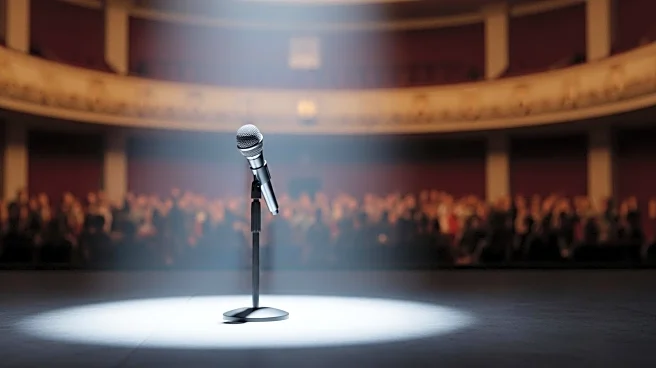What is the story about?
What's Happening?
A federal judge in New York has dismissed Drake's defamation lawsuit against Universal Music Group (UMG), which stemmed from a rap battle with Kendrick Lamar. The case revolved around Lamar's song 'Not Like Us,' which Drake claimed contained false and defamatory insinuations about him. Judge Jeannette Vargas ruled that the statements in question were 'nonactionable opinion,' noting the song's use of hyperbolic language typical of rap battles. Drake's team plans to appeal the decision, arguing that UMG's promotion of the song prioritized profits over artist safety. UMG expressed satisfaction with the dismissal, emphasizing the importance of creative expression.
Why It's Important?
The dismissal of Drake's lawsuit underscores the legal protections afforded to artistic expression, particularly in genres like rap where hyperbolic and figurative language is common. This ruling may influence future cases involving defamation claims in the music industry, setting a precedent for how courts interpret artistic content. The decision also highlights the tension between artists and record labels regarding the balance between creative freedom and reputational harm. While UMG views the dismissal as a victory for artistic expression, Drake's appeal could further explore the boundaries of defamation in music.
What's Next?
Drake's team has announced plans to appeal the judge's decision, which could lead to further legal scrutiny of the case. The appeal process may involve re-evaluating the balance between artistic freedom and defamation claims, potentially impacting how similar cases are handled in the future. Stakeholders in the music industry, including artists and record labels, will likely monitor the appeal closely, as its outcome could affect contractual and promotional practices. Additionally, the appeal may prompt discussions on the ethical responsibilities of record labels in promoting content that could harm an artist's reputation.
Beyond the Headlines
The case raises broader questions about the role of record labels in managing artist relationships and the ethical implications of promoting controversial content. It also touches on the cultural significance of rap battles as a form of artistic expression, where exaggerated claims are often part of the genre's tradition. The legal interpretation of such content could influence how artists approach their craft, potentially affecting the creative landscape of the music industry. Furthermore, the case may spark debates on the limits of free speech in artistic contexts, particularly when accusations of serious misconduct are involved.

















